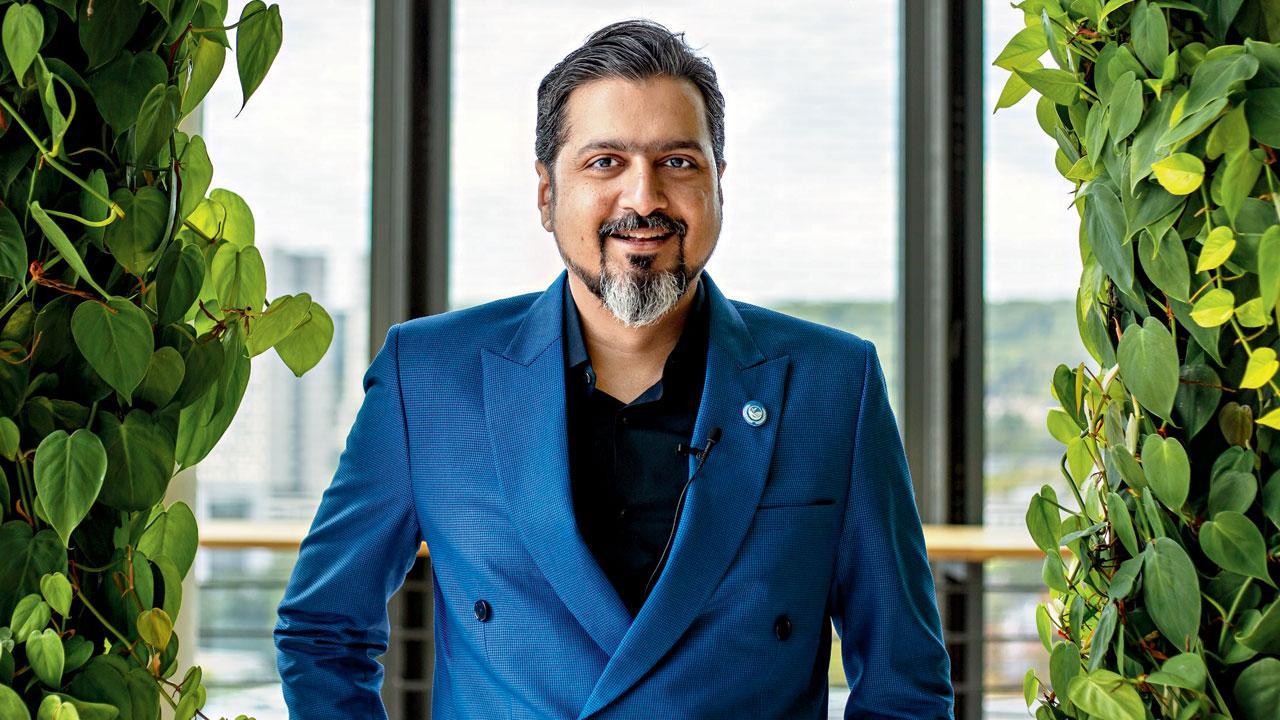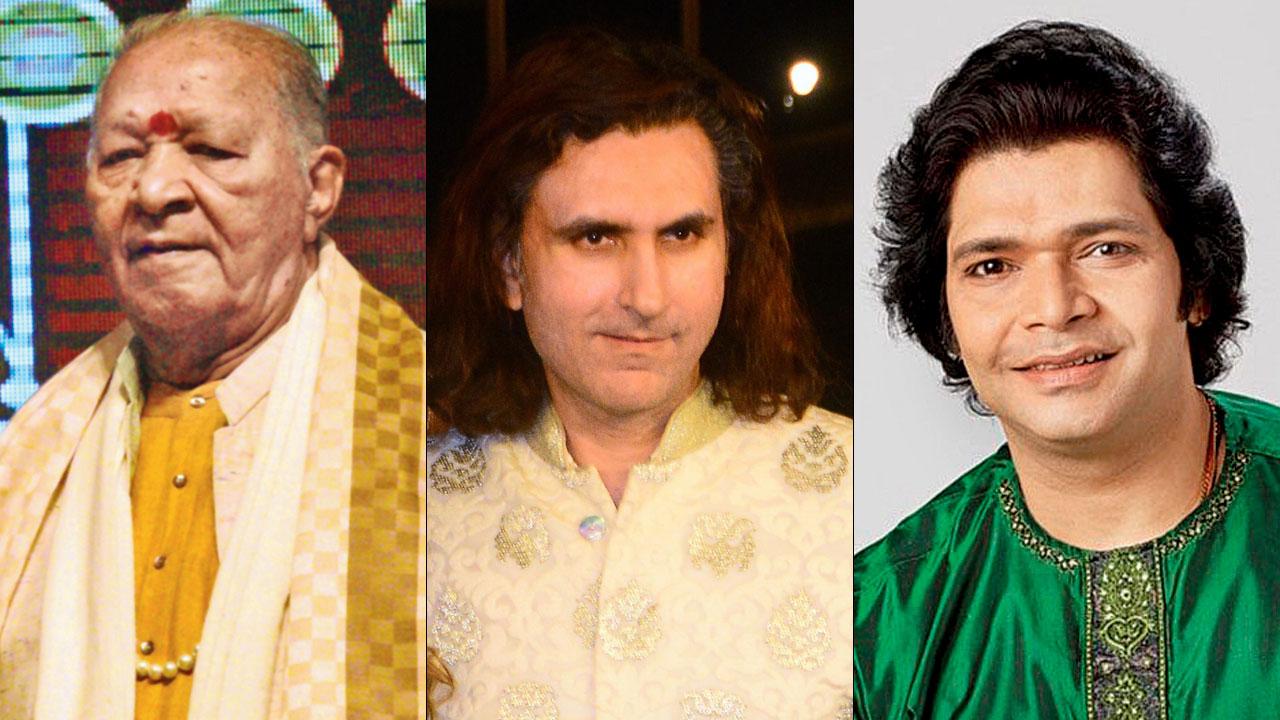Three-time Grammy Award-winning artiste Ricky Kej’s upcoming rendition of the National Anthem is special for more reasons than one

Ricky Kej
Three-time Grammy Award-winning artiste Ricky Kej’s upcoming rendition of the National Anthem is special for more reasons than one. Apart from serving as a platform on which several music legends will showcase their prowess, it also set a Guinness World Record for the largest music lesson ever conducted. Kej, who plans to unveil the anthem as part of the upcoming Independence Day celebration, brought together veterans like Pandit Hariprasad Chaurasia, Grammy winner Rakesh Chaurasia, Rahul Sharma, Amaan and Ayaan Ali Bangash, and Ghatam maestro Giridhar Udupa, among others. In this interview, Kej discusses why he chose to create yet another anthem after his previously released successful version with the British symphony orchestra, and tricks he employs while working on collaborations.

Pandit Hariprasad Chaurasia, Rahul Sharma, Rakesh Chaurasia
Edited excerpts of the interview:
What prompted the decision to create this rendition of the National Anthem?
I’ve done a bunch of versions of the National Anthem in the past. The first major one that I made was in 2015, when I created a version that celebrated the wildlife of our country. That was launched at the Paris Climate Change Conference. After that, I did a version in 2022, which was sung by refugees who are currently living in India, because, [at the time], I was mentoring them. Many of them are brilliant musicians. Last year, I did one with the British symphony orchestra, and that is where the roots of this year’s version also lie. I thought that would be my penultimate version of the anthem, but after a few months of living with it, I started realising that it would sound cool if I layered it with [works of] Indian instrumentalists. I wanted to get the best in the field, and that is when I approached [the veterans] who are part of it. There’s an institute in Bhubaneswar called Kalinga Institute of Social Sciences. I’ve been working with them for four years, and they [look over] 14,000 tribal students. We decided to give them music lessons, and for this anthem, we recorded all of them. We called the guys from the Guinness World Record, and they registered this as the largest music lesson [ever conducted]. We got the kids to sing in four-part harmonies and that became the new version of the anthem.
How did you arrive at the artistes who have also contributed to this anthem?
The reason I recorded with a symphony orchestra last year is because an orchestra has a lot of eclectic instruments. There’s the violin, which is a soft instrument, a timpani, which is a heavy percussion instrument, a harp, which is also soft, and a bassoon, which is really loud. Each instrument maintains its own unique identity, but when all of them are played together, the resulting music is beautifully harmonious. I find that representative of India. Here, nobody must necessarily have the same political ideology, speak the same language, or have the same culinary tastes. But we have to work together in harmony to build the nation. Philosophically, we captured the soul of India [in the last] orchestral version, but we needed that to also be sonically reflected too. That is when I started to approach these musicians.
There’s a lot that you must have learned while trying to bring artistes of their stature together for one project.
Each of these musicians is far more accomplished than I am. So, that is a huge advantage of working with them. I’ve learned that while working with artistes who are at the top of their game, it is best to not go into the studio with a definitive plan. You should have an idea of what you plan to do, and let them know about it. Thereafter, let them take over. If you go in with a lot of planning, you will be limited by your imagination. But if you simply have a framework, and let them improvise, you’ll be shocked by the amazing places they can take your composition to. Their abilities are outstanding. That’s precisely what happened in this case too. And while we had to include all of them in a 52-second video, I intend to release their individual versions as well.
It’s perhaps unfair to ask you this, but was any one collaborator particularly special?
[Collaborating with] Pandit Hariprasad Chaurasia has been a lifelong dream. I’ve seen him only from afar, as I’ve been to four of his concerts. Being in the same room with him and feeling his presence was a big blessing for me. To see him in action, and taking a few of my directions made me [feel special]. He’s the kind of person you only want to learn from. That was an amazing experience. Also, I’ve collaborated with Giridhar Udupa on several occasions. When I brought him into the studio, I thought he would simply play a rhythm. But, he got a whole lot of Ghatams [music instrument], each of a different pitch. He played the entire anthem using them. That was a unique experience.
 Subscribe today by clicking the link and stay updated with the latest news!" Click here!
Subscribe today by clicking the link and stay updated with the latest news!" Click here!










